Large-scale EMI quality assurance survey released: NSYSU says language is not the key factor
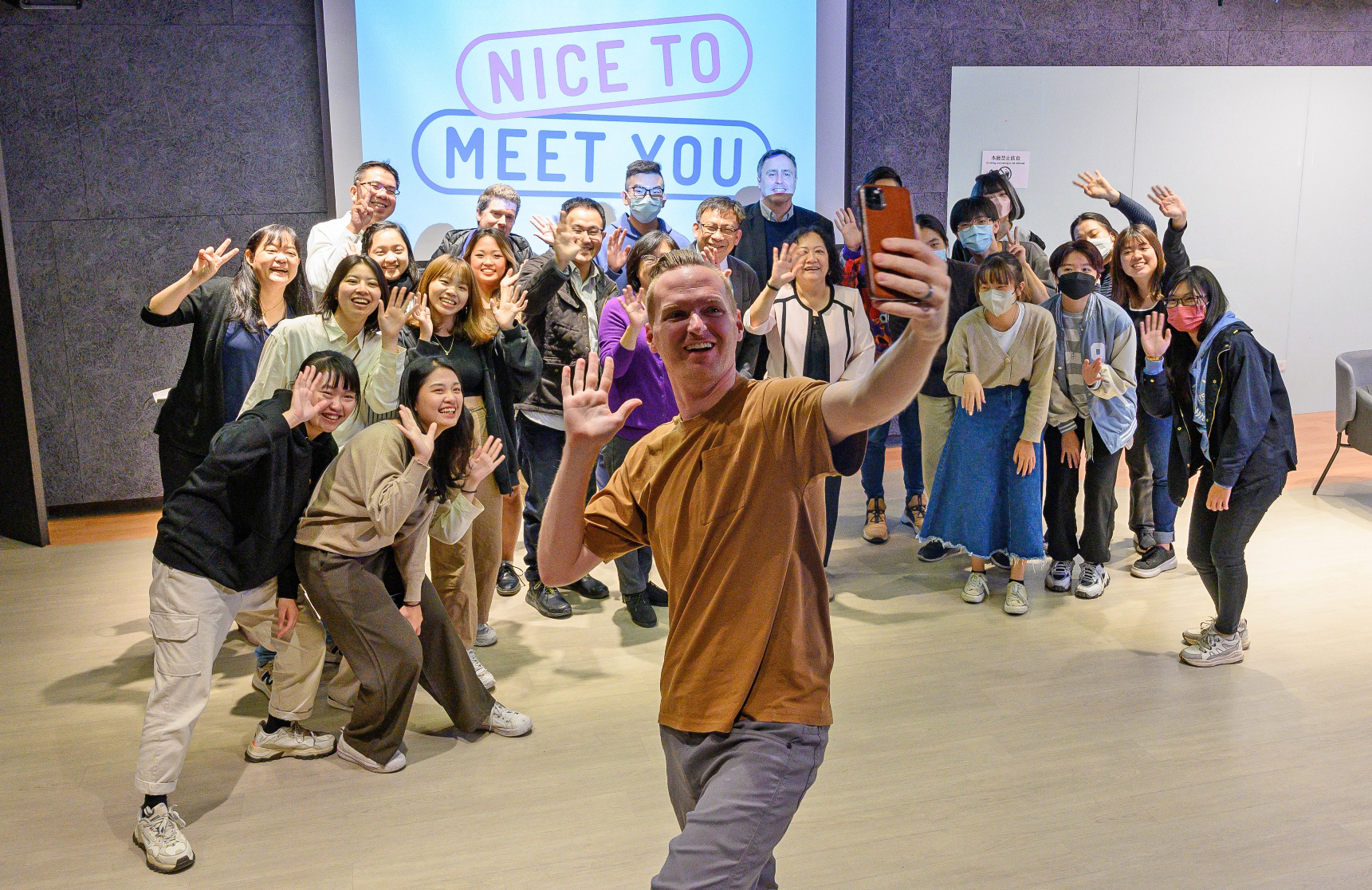
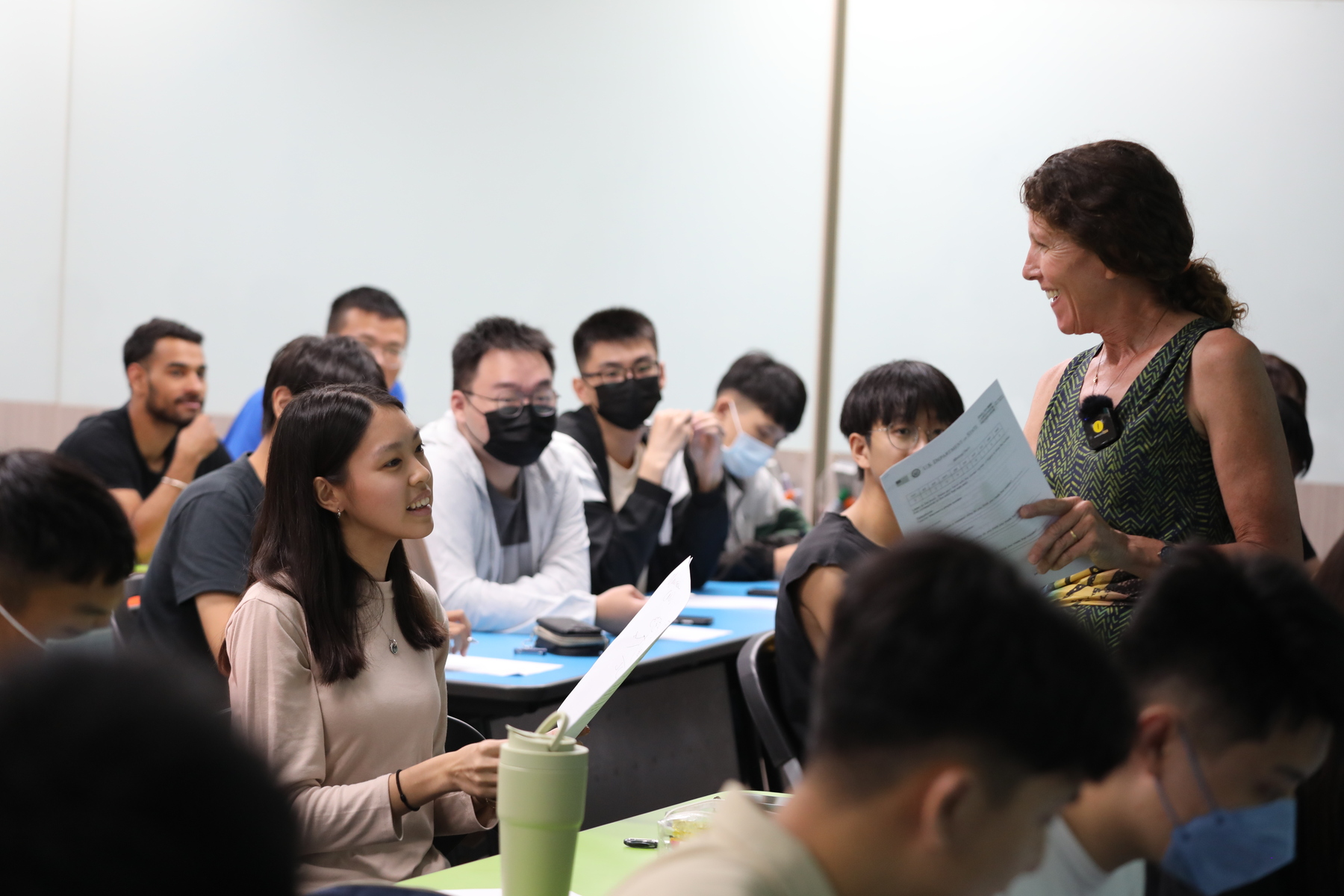

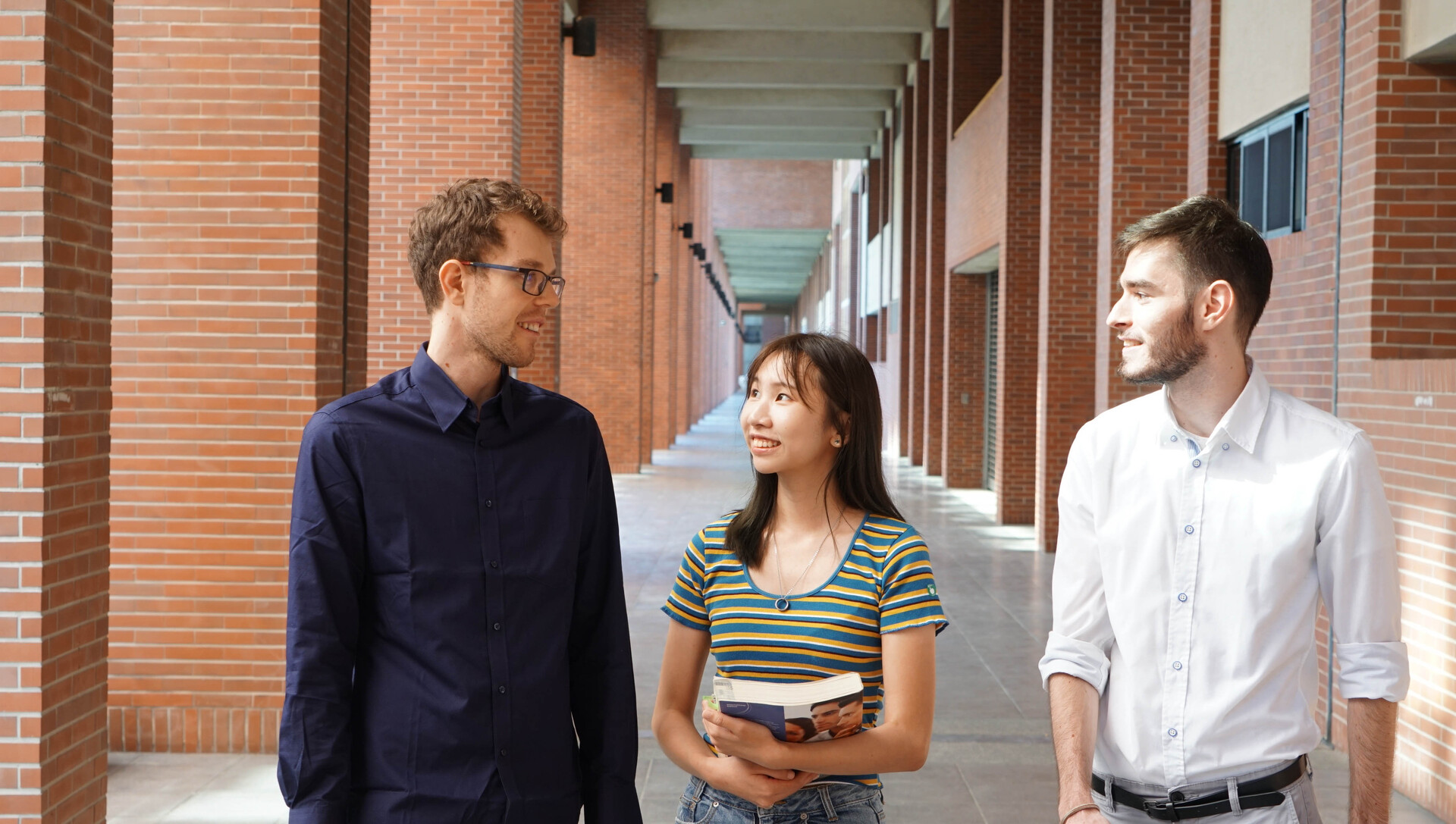
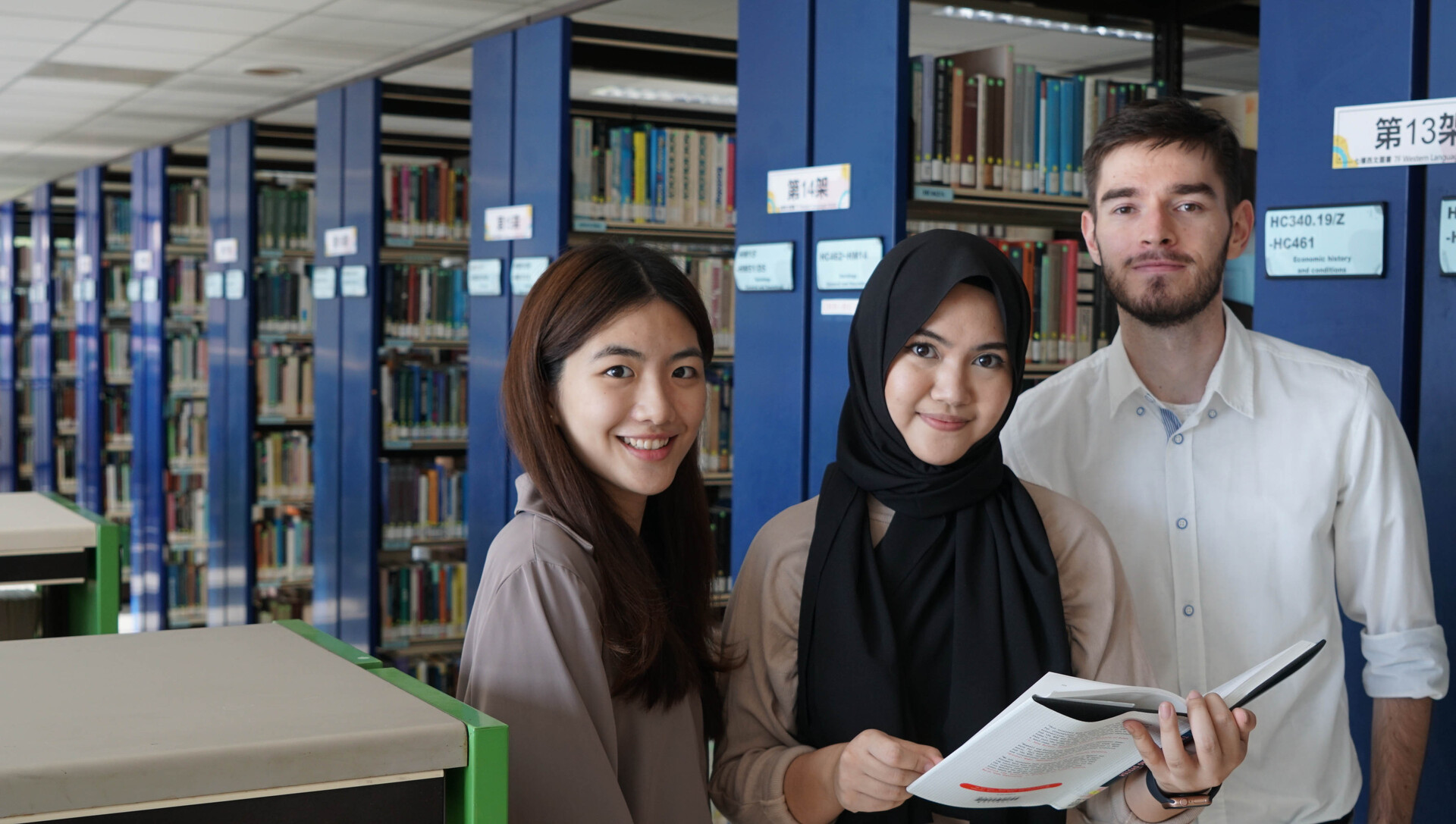
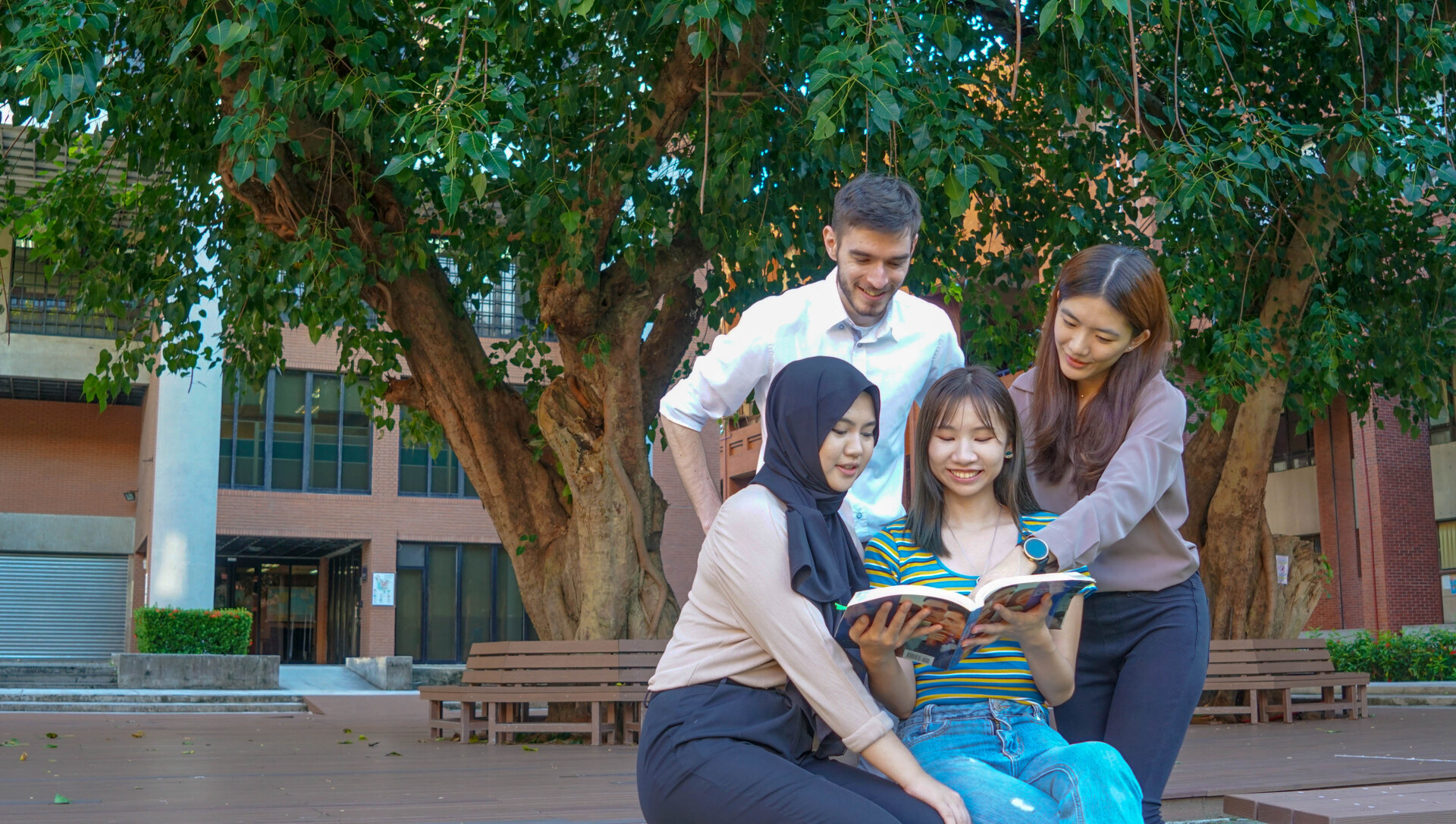
2025-06-10
National Sun Yat-sen University (NSYSU) was once again selected by the Ministry of Education (MOE) as a BEST Bilingual Benchmark University at the end of last year (2024). To assess the quality of English as a Medium of Instruction (EMI) and ensure students' educational rights, NSYSU has been implementing a department-level EMI quality assurance project since 2022. This year, it has taken the lead nationwide, becoming the first higher education institution in Taiwan to conduct a large-scale internal quality assurance review of bilingual education with tangible results. The university has now released its findings, demonstrating the high quality of EMI and showing that students' learning outcomes are comparable to those in Chinese-taught courses. This survey aims to provide a reference model for tracking EMI quality nationwide.
Dean of the College of Science at NSYSU, Dr. Jyh-Tsung Lee, stated that the college pioneered the "freshman science core required curriculum quality assurance project." This initiative evaluates learning outcomes in both Chinese and English taught sections of core freshman required courses—including Calculus, General Physics, and General Chemistry—across the Colleges of Science, Engineering, and Marine Sciences. A total of 23 courses, involving 10 faculty members and nearly 1,000 students, were assessed in this review.
Professor May-Ru Chen from the Department of Applied Mathematics, Associate Dean of the College of Science and principal investigator of the project, highlighted that after one semester of analysis, the results indicate that the choice of English or Chinese as the language of instruction is not the primary factor affecting students' learning outcomes. Instead, faculty experience and teaching skills play a decisive role. To further understand students' experiences and challenges in EMI courses, surveys were conducted. The results showed that some students wished for more learning resources outside of class. In response, instructors provided instructional videos, allowing students greater flexibility for self-study and review. These findings align with the "chemistry core required curriculum quality assurance project" implemented in the 2022–2023 (111–112) academic years, which also demonstrated that student performance and motivation are closely related to faculty experience. Overall, the results emphasize that in the implementation of EMI, teaching skills and faculty experience are critical. Therefore, universities must continuously provide support and resources to ensure teaching quality.
NSYSU has taken concrete steps to enhance bilingual education. These include adopting standardized textbooks to ensure consistent learning resources for all students, maintaining at least 80% content consistency between English and Chinese taught sections to preserve knowledge acquisition levels, and designing unified midterm and final exams to provide a comparable benchmark for evaluating student performance. Additionally, faculty and teaching assistants regularly hold meetings to discuss teaching strategies, instructional methods, assignments, and exam arrangements. This fosters experience-sharing and ensures that students in both English- and Chinese-taught courses receive equal learning opportunities. The project also delves deeper into analyzing student motivation and learning processes to refine future academic support systems.
NSYSU President Dr. Chih-Peng Li envisions the university as the "Harvard in southern Taiwan" and is committed to enhancing its global competitiveness. By leveraging the success of its bilingual education initiatives, NSYSU aims to become a hub for domestic and international students in the Asia New Bay Area, fostering both academic and professional growth. Vice President of Academic Affairs Dr. Shu-chen Sherry Ou emphasized that the future focus of NSYSU's bilingual program will be on course quality assurance. The university will continue evaluating learning outcomes, reviewing curriculum consistency and assessment standards, strengthening faculty support systems, and optimizing student learning resources to ensure a steady improvement in EMI course quality. In the short term, the goal is to provide students with a high-quality educational experience regardless of the language of instruction. In the long run, NSYSU plans to increase the number and quality of EMI courses to attract more international students, furthering its goal of campus internationalization and creating a globally competitive learning environment.
Since 2019 (108), NSYSU has actively promoted bilingual education and EMI, establishing an internationally oriented bilingual campus. Recognized by the Ministry of Education for its achievements, NSYSU was designated as a "Key Bilingual Cultivation University" in the 2021 (110) academic year. As a core strategy, the university has established dedicated EMI programs, with 50% of undergraduate departments offering full EMI tracks as of 2024 (113). The Colleges of Science and Engineering have reached 100% EMI adoption, and the university plans to expand EMI programs across more departments. In 2025, NSYSU will host a bilingual course quality assurance and student learning outcomes forum, inviting partner institutions to participate in discussions and exchange experiences in bilingual education.
National Sun Yat-sen University (NSYSU) was once again selected by the Ministry of Education (MOE) as a BEST Bilingual Benchmark University at the end of last year (2024). To assess the quality of English as a Medium of Instruction (EMI) and ensure students' educational rights, NSYSU has been implementing a department-level EMI quality assurance project since 2022. This year, it has taken the lead nationwide, becoming the first higher education institution in Taiwan to conduct a large-scale internal quality assurance review of bilingual education with tangible results. The university has now released its findings, demonstrating the high quality of EMI and showing that students' learning outcomes are comparable to those in Chinese-taught courses. This survey aims to provide a reference model for tracking EMI quality nationwide.
Dean of the College of Science at NSYSU, Dr. Jyh-Tsung Lee, stated that the college pioneered the "freshman science core required curriculum quality assurance project." This initiative evaluates learning outcomes in both Chinese and English taught sections of core freshman required courses—including Calculus, General Physics, and General Chemistry—across the Colleges of Science, Engineering, and Marine Sciences. A total of 23 courses, involving 10 faculty members and nearly 1,000 students, were assessed in this review.
Professor May-Ru Chen from the Department of Applied Mathematics, Associate Dean of the College of Science and principal investigator of the project, highlighted that after one semester of analysis, the results indicate that the choice of English or Chinese as the language of instruction is not the primary factor affecting students' learning outcomes. Instead, faculty experience and teaching skills play a decisive role. To further understand students' experiences and challenges in EMI courses, surveys were conducted. The results showed that some students wished for more learning resources outside of class. In response, instructors provided instructional videos, allowing students greater flexibility for self-study and review. These findings align with the "chemistry core required curriculum quality assurance project" implemented in the 2022–2023 (111–112) academic years, which also demonstrated that student performance and motivation are closely related to faculty experience. Overall, the results emphasize that in the implementation of EMI, teaching skills and faculty experience are critical. Therefore, universities must continuously provide support and resources to ensure teaching quality.
NSYSU has taken concrete steps to enhance bilingual education. These include adopting standardized textbooks to ensure consistent learning resources for all students, maintaining at least 80% content consistency between English and Chinese taught sections to preserve knowledge acquisition levels, and designing unified midterm and final exams to provide a comparable benchmark for evaluating student performance. Additionally, faculty and teaching assistants regularly hold meetings to discuss teaching strategies, instructional methods, assignments, and exam arrangements. This fosters experience-sharing and ensures that students in both English- and Chinese-taught courses receive equal learning opportunities. The project also delves deeper into analyzing student motivation and learning processes to refine future academic support systems.
NSYSU President Dr. Chih-Peng Li envisions the university as the "Harvard in southern Taiwan" and is committed to enhancing its global competitiveness. By leveraging the success of its bilingual education initiatives, NSYSU aims to become a hub for domestic and international students in the Asia New Bay Area, fostering both academic and professional growth. Vice President of Academic Affairs Dr. Shu-chen Sherry Ou emphasized that the future focus of NSYSU's bilingual program will be on course quality assurance. The university will continue evaluating learning outcomes, reviewing curriculum consistency and assessment standards, strengthening faculty support systems, and optimizing student learning resources to ensure a steady improvement in EMI course quality. In the short term, the goal is to provide students with a high-quality educational experience regardless of the language of instruction. In the long run, NSYSU plans to increase the number and quality of EMI courses to attract more international students, furthering its goal of campus internationalization and creating a globally competitive learning environment.
Since 2019 (108), NSYSU has actively promoted bilingual education and EMI, establishing an internationally oriented bilingual campus. Recognized by the Ministry of Education for its achievements, NSYSU was designated as a "Key Bilingual Cultivation University" in the 2021 (110) academic year. As a core strategy, the university has established dedicated EMI programs, with 50% of undergraduate departments offering full EMI tracks as of 2024 (113). The Colleges of Science and Engineering have reached 100% EMI adoption, and the university plans to expand EMI programs across more departments. In 2025, NSYSU will host a bilingual course quality assurance and student learning outcomes forum, inviting partner institutions to participate in discussions and exchange experiences in bilingual education.
Click Num:
Share
